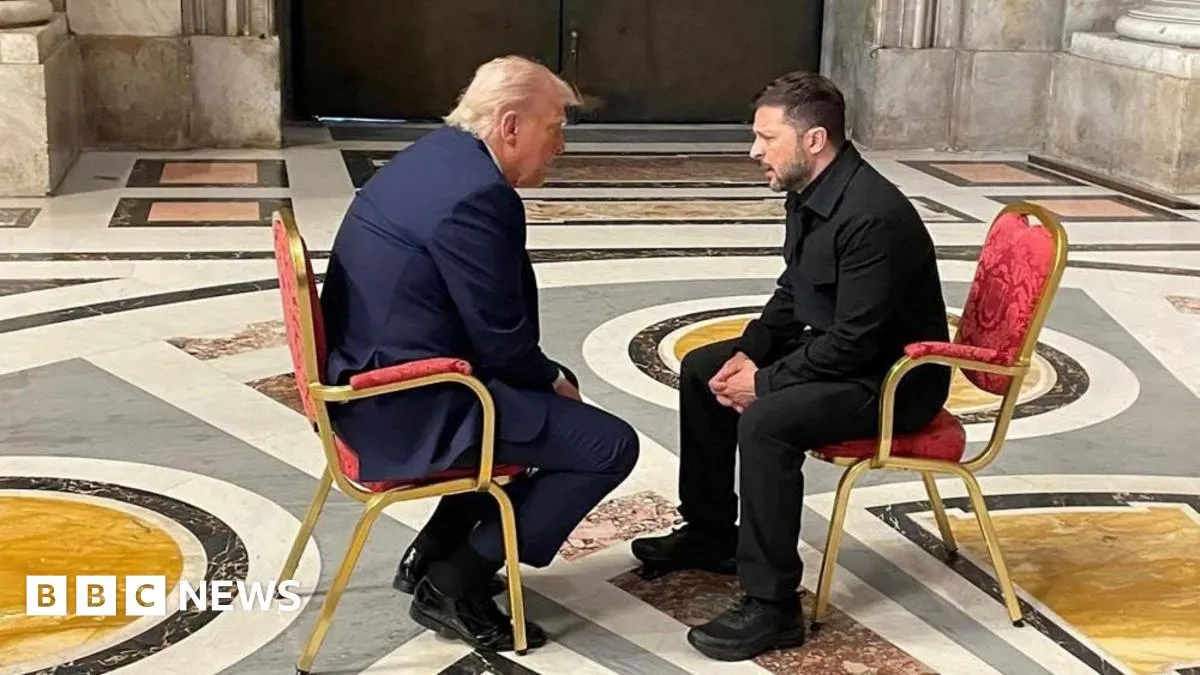
The latest US-Ukraine agreement, a draft currently under discussion, expands its focus beyond the initial scope of rare-earth minerals proposed by Kyiv. This multifaceted deal aims to establish a US-Ukraine government investment fund tasked with managing investments across various critical sectors of Ukraine’s economy. This means the fund could encompass all mineral resources, energy sectors, transportation, and other vital areas of Ukraine.
However, the draft notably lacks any explicit mentions of the “security guarantees” that Ukraine has been pressing for. Instead, it merely claims to serve as “a tangible demonstration of the United States of America’s support for Ukraine’s security.” This language essentially echoes statements made by the previous Trump administration, suggesting that US involvement in Ukraine’s mining and other sectors would inherently represent an investment in Ukraine's security. Nonetheless, Kyiv is seeking more specific commitments from the US regarding security.
In a live update from the White House, Bernd Debusmann Jr reports that during a cabinet meeting chaired by President Trump, there have been no discussions or indications regarding an imminent deal with Ukraine. The cabinet members have yet to mention Ukraine while discussing their accomplishments, which may indicate that the deal is still in development rather than finalized. Observers believe that when the agreement is signed, it will be announced with significant fanfare rather than being a muted affair amidst other discussions.
What exactly constitutes a 'critical mineral'? While it may seem straightforward, there is no universally accepted definition. Each country assesses its minerals based on two criteria: the importance of the mineral to its economy and technologies, and the risk associated with supply disruptions. For instance, the US maintains two distinct lists of critical minerals—one focused on energy technologies and another for broader economic purposes. The US list includes 50 minerals, while the UK recognizes 34 and India 30. Notably, cobalt appears on many of these lists due to its critical role in technologies like rechargeable batteries, with over 50% of the global supply sourced from a single country.
According to reports from US State Department correspondent Tom Bateman, Ukrainian officials state that the responsibility for determining the timing of the deal signing now rests with the White House. A draft of the agreement, which has been reviewed by the BBC, outlines the creation of a joint US-Ukraine government investment fund aimed at prospecting for critical minerals in Ukraine and establishing financial arrangements for revenue sharing between the two nations. A key element of this draft indicates that future American military assistance to Ukraine will be counted as part of the investment costs, aligning with President Trump’s previous demands regarding US financial returns from its military support.
The progress on this minerals deal comes just days after President Trump and Ukrainian President Zelensky met at the funeral of Pope Francis. Their brief discussion was described by the White House as very productive, with Zelensky noting its potential to be historic. Trump expressed concerns about escalating Russian aggression in Ukraine, indicating a sense of urgency for both nations.
The draft agreement spans nearly 3,500 words and outlines several key objectives: enhancing economic cooperation between the US and Ukraine, strengthening partnerships for Ukraine’s reconstruction following Russia’s full-scale invasion, and acknowledging the need for financial, structural, institutional, and technological transformation within Ukraine. This agreement is also intended to serve as a flagship mechanism for promoting transparent and accountable investments in Ukraine’s critical economic sectors.
As of now, there is still no confirmation from US officials regarding the impending minerals deal with Ukraine, despite optimistic reports from Ukrainian sources. The lack of response from US officials could suggest that details are still being finalized. Ukrainian Prime Minister Denys Shmyhal remains hopeful that the agreement will be signed in the next 24 hours, highlighting the urgency of finalizing arrangements for the investment fund and its financing.
Ukraine holds approximately 5% of the world’s critical raw materials, including an estimated 19 million tonnes of graphite, which positions the country among the top five global suppliers of this essential mineral used in electric vehicle batteries. Additionally, Ukraine is rich in titanium and lithium deposits and claims to possess substantial reserves of rare earth metals, crucial for producing modern technologies. However, disputes exist regarding the extent of these reserves, and parts of these mineral deposits have been seized by Russia. According to Economy Minister Yulia Svyrydenko, resources valued at $350 billion remain in territories currently occupied.